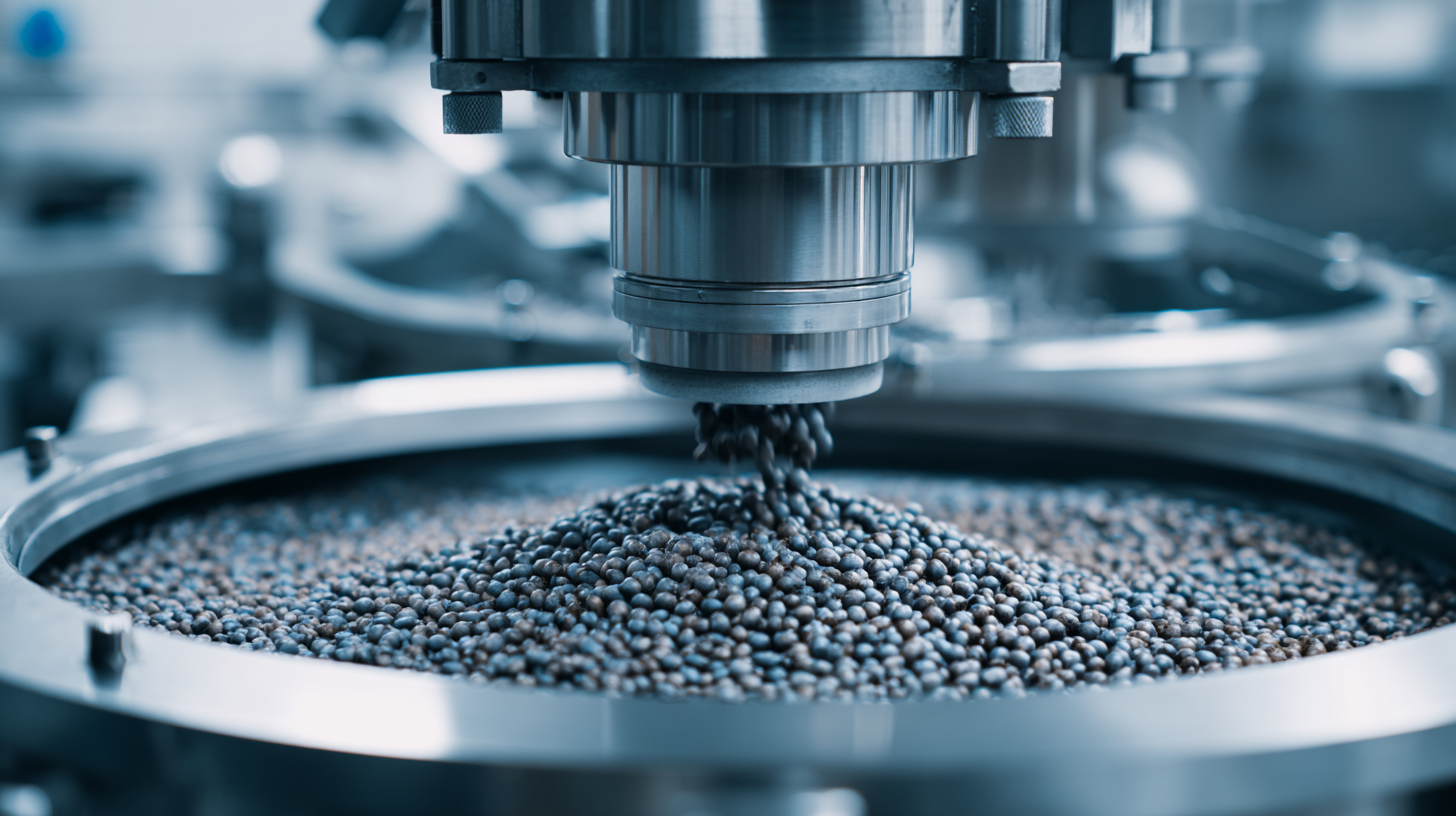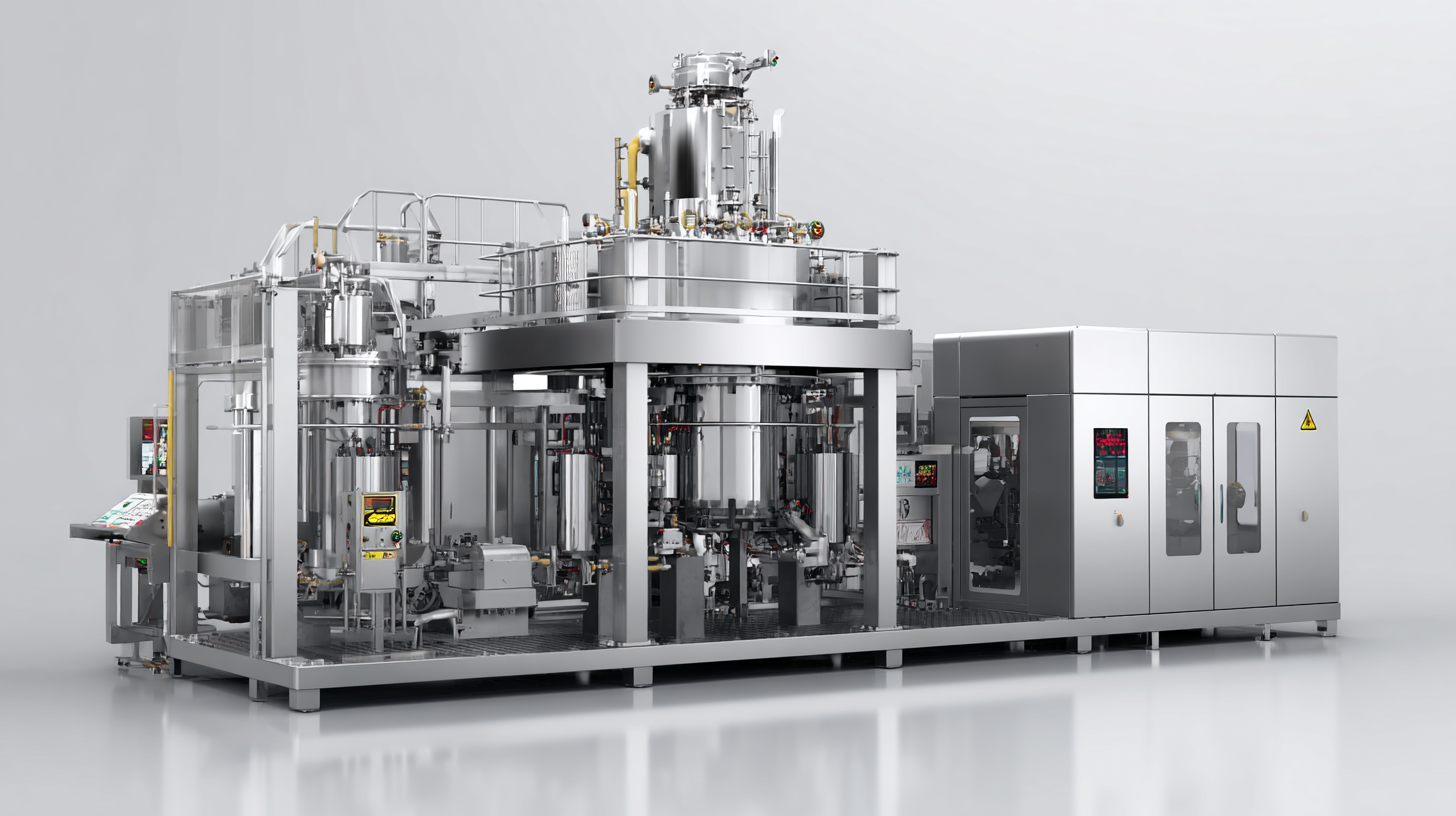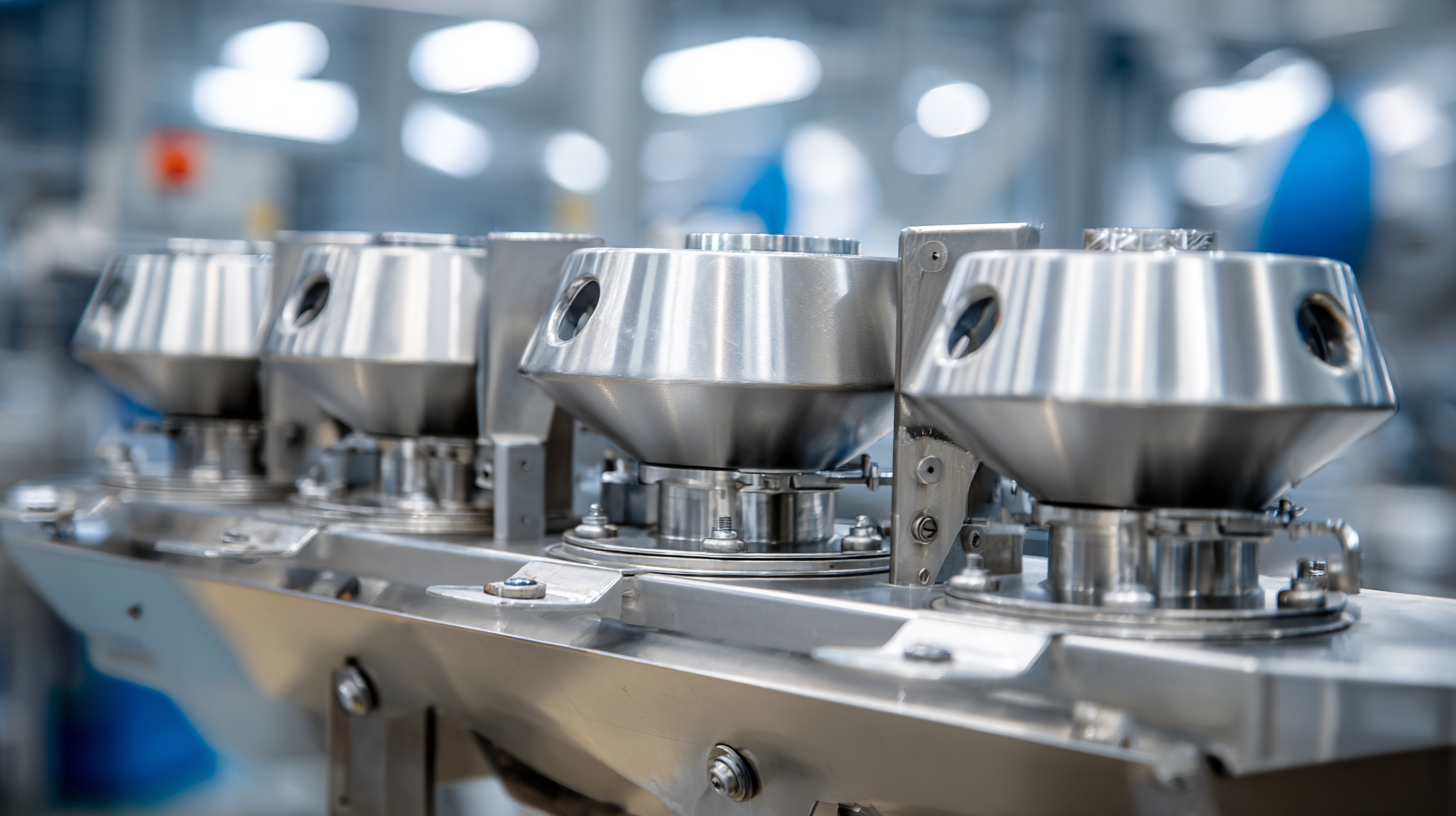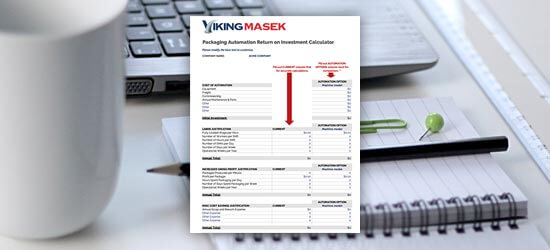
How to Navigate Import and Export Certifications for the Best Powder Filling Machine
Navigating the complexities of import and export certifications for machinery, particularly in the realm of powder filling machines, is crucial for businesses aiming for global reach. According to a recent report from the International Trade Administration, the global market for powder filling machines is projected to grow at a CAGR of 6.2% from 2021 to 2026, emphasizing the increasing demand for efficient filling solutions across various industries, including pharmaceuticals, food, and chemicals. Ensuring compliance with international certification standards not only enhances product credibility but also opens doors to new markets.

With stringent regulations and specific requirements, understanding the landscape of certifications is essential for manufacturers and exporters. This blog will explore key factors and insightful strategies on how to adeptly navigate these certifications, ultimately empowering your business to leverage the advantages offered by a high-quality powder filling machine.
Understanding Import and Export Certifications for Powder Filling Machinery
When considering the import and export of powder filling machinery, understanding the relevant certifications is critical to ensure compliance and efficiency. These certifications can vary by region and can include safety standards, environmental regulations, and quality control measures. Familiarizing yourself with these requirements can facilitate smoother transactions and establish trust with clients and suppliers worldwide.
Tip: Always research the specific certifications required in your target market. For instance, the CE marking is essential for European markets, indicating compliance with health, safety, and environmental protection standards. In the U.S., look into certifications from organizations like the National Sanitation Foundation (NSF) and Underwriters Laboratories (UL) for equipment used in food-related applications.
Additionally, maintaining accurate documentation of certifications can help in customs clearance and reduce the risk of delays. Regularly updating your knowledge on changing regulations and industry standards is also essential, as it ensures that your powder filling machines remain compliant for international trade.
Tip: Establish a reliable relationship with a certification consultant or a compliance officer who can guide you through the certification process, making it easier to navigate global markets effectively.
Key Certifications Required for Powder Filling Machines in Global Trade
When it comes to global trade, ensuring compliance with the necessary certifications for powder filling machines is crucial. According to a recent industry report by MarketsandMarkets, the global market for powder filling machines is expected to grow from $3.1 billion in 2023 to $4.2 billion by 2028, emphasizing the significance of manufacturers adhering to international standards. Certifications such as CE marking, FDA approval, and ISO 9001 are essential for businesses seeking to export their machines. CE marking, for instance, indicates conformity with health and safety standards within the European Economic Area, while FDA approval guarantees compliance with U.S. food and drug regulations, which is particularly vital for machines handling pharmaceuticals and food products.
In addition to these certifications, sustainability and environmental standards are becoming increasingly important. The ISO 14001 certification, which focuses on effective environmental management systems, is gaining traction among manufacturers. A report by Technavio highlights that nearly 30% of consumers choose products based on corporate social responsibility efforts, driving businesses to adopt green practices in their manufacturing processes. As the market evolves, possessing the right certifications not only enhances the credibility of powder filling machines but also meets the growing demand for sustainable practices in global trade.

Evaluating Manufacturing Standards: ISO, CE, and FDA Guidelines
When navigating the landscape of import and export certifications for powder filling machines, understanding manufacturing standards such as ISO, CE, and FDA guidelines becomes essential. The recent announcement by the U.S. to revoke recognition of Chinese KN95 mask standards highlights the significance of compliance with changing regulations in international trade. This shift not only affects manufacturers in the medical supply sector but also underscores the importance of having up-to-date certifications for all products to avoid disruption in exports.
For businesses involved in the powder filling machine industry, grasping the nuances of CE and FDA certification is vital. While the CE mark signifies compliance with EU safety, health, and environmental protection standards, the FDA’s emergency use authorization provides a pathway for faster access to market amidst urgent public health needs. Manufacturers must ensure that their products meet these rigorous standards, as regulatory bodies continue to adapt their guidelines in response to global health challenges. Keeping abreast of these certifications not only safeguards exports but also enhances product credibility in a competitive market.
Comparative Analysis: Top Powder Filling Machine Manufacturers Worldwide
The global powder filling machine market is witnessing significant growth, driven by the increasing demand for efficient packaging solutions across various industries. The segment of food packaging is particularly notable, as the market for food packaging equipment was valued at approximately $17.43 billion in 2019 and is projected to expand to $28.29 billion by 2032, reflecting a compound annual growth rate (CAGR) of 3.6%. This rise underscores the need for advanced powder filling machines, which are essential for maintaining product quality and regulatory compliance in the food sector.
A comparative analysis of top powder filling machine manufacturers worldwide highlights their diverse offerings and innovations. With the global packaging machinery market valued at USD 46.82 billion in 2023 and expected to grow to USD 69.58 billion by 2028, competitors are increasingly focused on integrating automation and precision technology into their designs. Furthermore, the capsule filling machines segment is also on the rise, estimated at USD 646.2 million in 2025 and projected to reach USD 1.03 billion by 2035, indicating robust market demand for specialized filling solutions. This competitive landscape requires businesses to stay informed about certification requirements, technology advancements, and manufacturer capabilities.
Best Practices for Compliance in Importing and Exporting Filling Equipment
When importing and exporting powder filling machines, compliance with international certifications is crucial for avoiding delays and ensuring the safety and quality of equipment. According to a report by the Food and Drug Administration (FDA), approximately 68% of import-related delays in the manufacturing sector can be attributed to compliance issues. Therefore, understanding and adhering to specific regulations, such as the International Organization for Standardization (ISO) standards, can streamline the process. ISO 9001, which focuses on quality management systems, is particularly essential for companies involved in the global supply chain of filling equipment.

Furthermore, it's vital to be aware of the local regulations in target markets. For instance, the European Union's Machinery Directive mandates that all equipment must meet stringent health and safety requirements before being sold in member countries. A study by the International Trade Centre indicated that firms that actively engage in compliance training and invest in certification processes can reduce the risk of customs seizures and expedite market entry by up to 30%. By keeping abreast of these best practices, businesses can navigate the complexities of import and export certifications more effectively, ensuring their powder filling machines meet necessary standards and reach their intended markets without obstacles.


